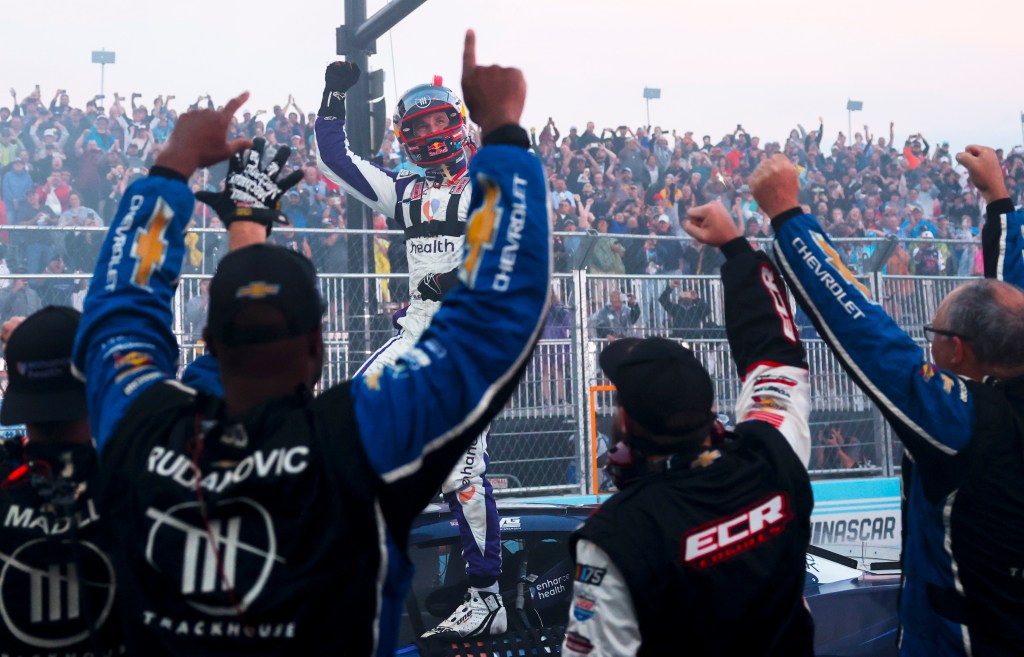No place does summer like Chicago. From now through Labor Day, millions of visitors will flock here, filling the city’s hotels, restaurants, shops, museums, Navy Pier and the rest of the lakefront, the Riverwalk, tour boats, ballparks and the zoo, plus the umpteen festivals and block parties throughout many neighborhoods.
Many downtown hotels are already fully booked — at rates upward of $1,000 a night — for 2024’s Big Three events: NASCAR’s Chicago Street Race, Lollapalooza and the Democratic National Convention.
The throngs matter, even if you’re not planning to join them. The taxes and fees that the city collects from event organizers and attendees — Lollapalooza paid the Chicago Park District a record $9.6 million to use Grant Park last year — defray not only direct expenses, but they also fund police, social services and mundane but important services such as garbage pickup.
In short, Chicago needs outsiders’ tax revenue to make municipal ends meet.
Some residents worry, however, that Chicago may not be up to hosting the nonstop jollification.
Supermajorities of Chicago adults say tentpole festivals such as Taste of Chicago and Lollapalooza are a net plus for the city’s tourism (80%), economy (75%) and reputation (69%), according to a new Harris Poll. That said, 3 in 10 expect to be affected by event-related street or park closures. One in five also say these disruptions often outweigh the positives.
Achieving the right balance between drawing a free-spending crowd and maintaining peace and quiet for everyone else is tricky, as Mayor Brandon Johnson and event organizers and attendees are discovering. For a densely packed and cash-strapped city such as Chicago, it sometimes is proving impossible.
Exhibit A: Riot Fest. The annual punk and indie rock festival has inspired both love and loathing since it set up in Douglass Park in 2015 after several years in Humboldt Park. The three-day weekend event regularly draws 50,000 concertgoers each day. But some neighborhood groups have complained about dealing with noise and traffic and being fenced out of the West Side park for weeks every year.
This month, Riot Fest’s organizer announced that this September’s music would happen instead at SeatGeek Stadium in southwest suburban Bridgeview, pointedly blaming the move on the Chicago Park District for slow-walking the permit issuance. The Park District, whose board the mayor appoints, responded that it had only been trying to aid the nearby community.
(The collateral damage includes the National Women’s Soccer League’s Chicago Red Stars, who play at SeatGeek Stadium and now no longer have a venue for one of their home games.)
Editorial: Riot Fest’s exit to the suburbs is a blow to the West Side. It was preventable.
Exhibit B: The Chicago Pride Parade. One of the country’s oldest and biggest LGBTQ celebrations, the North Side parade attracts more than 1 million attendees along its 2-mile route every year. Last year, 200 floats, bands and other contingents participated.
But several weeks before this year’s parade was set to step out on June 30, the mayor’s office surprised organizers by dramatically shrinking its size and duration, saying the cuts were necessary to reduce police overtime expenses and lessen the impact on nearby residents. The mayor’s office initially capped the number of participating groups at 125, though after a backlash, it agreed to allow 150. Even so, every school group in last year’s parade ended up disinvited.
We’ll soon find out if the return of NASCAR’s Street Race to Grant Park will become Exhibit C. Despite torrential rains that forced organizers to suspend the first day of racing and cancel both days of concerts, the city’s tourism agency called last year’s event a financial success. Its almost 50,000 attendees spent an estimated $65 million, generating $8.3 million in taxes.
Few Chicago residents see the value, however. In another Harris Poll, only 2 in 5 say the race will be good for Chicago, and a third say they expect to be inconvenienced by its month of street closures, including the shutdown of a 1.5-mile stretch of DuSable Lake Shore Drive throughout the July Fourth weekend. Local interest in the event is dropping, with just 1 in 5 interested in attending, down from 34% who expressed interest in last year’s debut.
No mayor can make everyone happy. Siding with NIMBYs (“not in my neighborhood”) and imposing too many restrictions on events will hurt businesses — and their employees — as well as the city’s own cash flow. But giving event organizers everything they want, including privatizing public property for days or weeks on end, will rankle Johnson’s constituents and progressive allies. Shortening the length of closures this year relative to last year, as the city says it’s doing around the Street Race, is a start.
The balance Johnson strikes may foreshadow how he’ll handle looming mega-projects such as building a domed lakefront stadium for the Bears and a sports and entertainment complex for the White Sox, and efforts that go right to the core of Chicago: revitalizing the post-pandemic Loop and the city’s ravaged neighborhoods.
Asked about Chicago’s loss of Riot Fest, Johnson promised to do better. “Like I’ve done most things, or all things, in this city, we’ll figure out where those disconnects are and find opportunities where we can either build, mend or create,” he said.
In the meantime, let’s make the most of summer in Chicago.
Will Johnson is the Chicago-based CEO of The Harris Poll, one of the world’s leading public-opinion research firms
Submit a letter, of no more than 400 words, to the editor here or email letters@chicagotribune.com.


